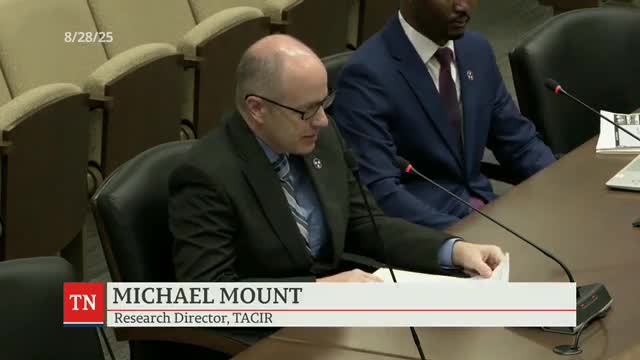Tennessee Greenbelt Designation Impacts Property Tax Assessments and County Revenue
August 28, 2025 | TACIR, Deparments in Office of the Governor, Organizations, Executive, Tennessee
Thanks to Scribe from Workplace AI , all articles about Tennessee are free for you to enjoy throughout 2025!

This article was created by AI using a video recording of the meeting. It summarizes the key points discussed, but for full details and context, please refer to the video of the full meeting. Link to Full Meeting
The meeting highlighted that the impact of Greenbelt properties varies widely across Tennessee. In many counties, the designation can significantly reduce the property tax base, leading to higher tax rates for property owners who do not qualify for Greenbelt status. This disparity is particularly pronounced in urban areas, where land values can far exceed the use values assigned for tax purposes. For instance, some urban Greenbelt properties may be valued for tax purposes at less than 1% of their market value.
The subcommittee reviewed a 2009 report that identified several issues with the Greenbelt law, including the need for reforms to ensure that tax benefits are directed to those who genuinely rely on agricultural activities for their livelihood. Recommendations from the report included establishing minimum valuations for Greenbelt land, modifying rollback tax calculations to reflect actual sale prices, and allowing county assessors to inspect properties to verify compliance with Greenbelt requirements. However, none of these recommendations have been adopted since their proposal.
The discussions also pointed to the potential for counties like Shelby County, which has a high millage rate and significant property holdings, to be heavily affected by these issues. The subcommittee's exploration of the Greenbelt program underscores the ongoing challenges in balancing property tax equity and the promotion of land conservation in Tennessee. As the state continues to grapple with these complexities, further examination and potential legislative action may be necessary to address the disparities created by the current Greenbelt framework.
Converted from TACIR Education Finance Subcommittee Aug 28, 2025 meeting on August 28, 2025
Link to Full Meeting
Comments
View full meeting
This article is based on a recent meeting—watch the full video and explore the complete transcript for deeper insights into the discussion.
View full meeting
